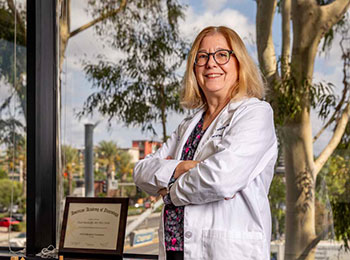News
Stay informed with the latest news from UCI Health. From groundbreaking medical advancements to community partnerships and achievements, our newsroom keeps you updated on how we’re transforming healthcare in Orange County and beyond.
If you are experiencing an emergency, please call "911" or go to the nearest UCI Emergency Department
Stay informed with the latest news from UCI Health. From groundbreaking medical advancements to community partnerships and achievements, our newsroom keeps you updated on how we’re transforming healthcare in Orange County and beyond.

Computerized alerts tailored to each patient help identify which antibiotic is best suited to treat patients hospitalized with common infections in two 92-hospital trials.


Local and national news media who wish to learn more about the medical education, cutting edge research and advances in patient care taking place at UCI Health can contact members of our media relations staff.
They can help you locate the right spokesperson for a story; facilitate your request to visit any of our healthcare facilities; and answer any questions you might have about our programs and services. Photos and video are also available upon request.
Please contact John Murray for information about patient stories.

